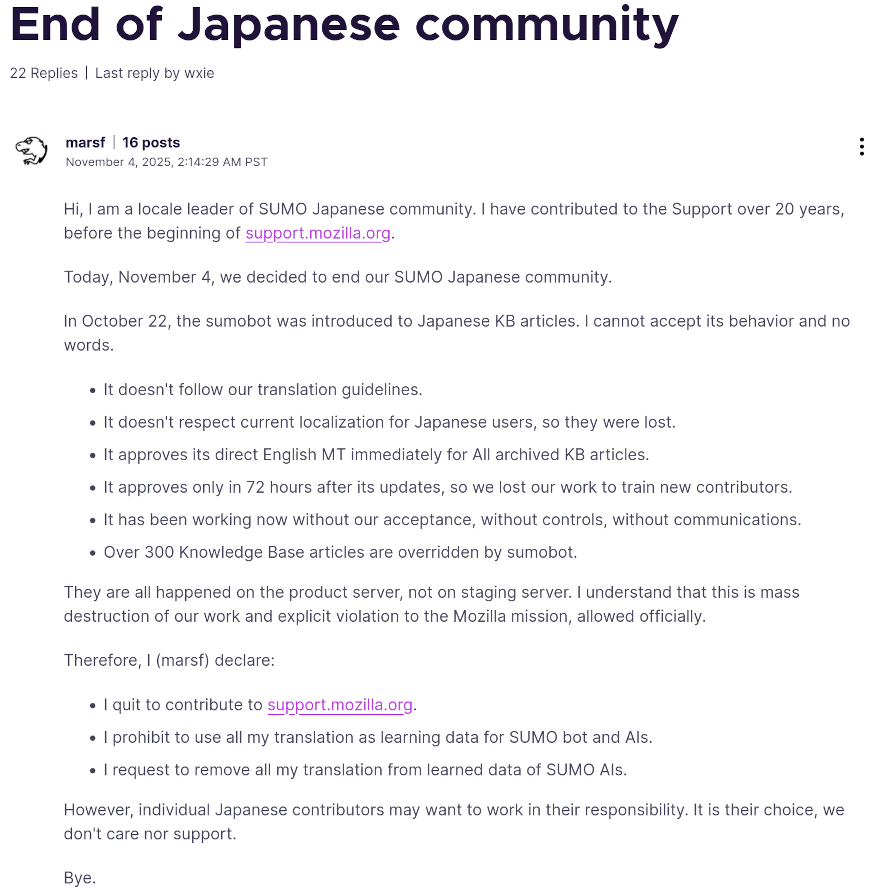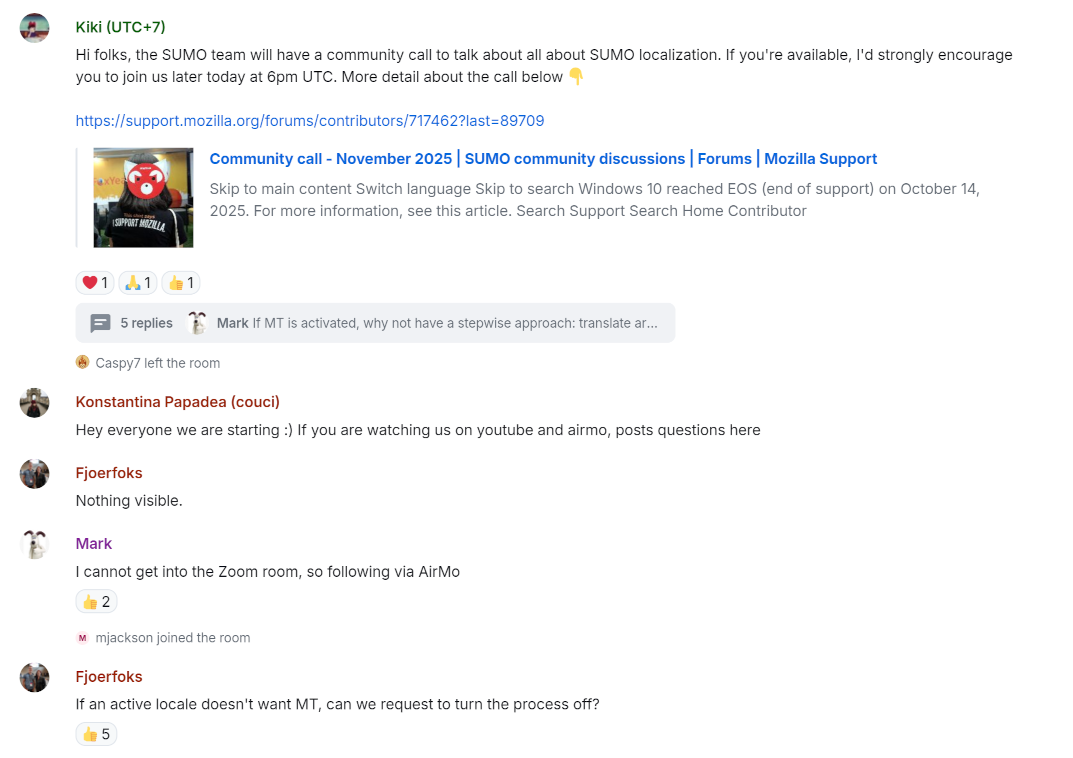TL;DR: On the November 2025 Mozilla Support Community call, Mozilla provided updates on the disbandment of Japanese SUMO over AI, calling it a “miscommunication” and “misinterpretation”.
During the call, Mozilla also doubled down on AI, confirming that volunteers would be unable to disable AI translations across the entire Mozilla knowledge-base, with the American English version of articles serving as the blessed, canonical version. Locale specific contributions will be overwritten (by design) by AI.
This means that without human intervention, Mozilla intends to roll out automated AI slop across the entire knowledge-base, especially for archival content.
I made a video if you want to watch instead.
Mozilla had their community call yesterday, and it was pretty eventful.
While I am still thinking through the deeper implications of the latest updates from Mozilla, there are a couple of quick takeaways that I think are important to note.
Takeaways
The Reason Japanese Volunteers on Support Mozilla Quit is Because of “Miscommunication”
You might have seen that Mozilla’s Volunteer Japanese Support community left very publicly via a note on the Support forums.
This was due to the introduction of automated AI translations to Mozilla local communities.
The entire post by the locale leader, marsf is worth reading, and they raised a number of issues in it.

Mozilla’s official response to the team rage quitting is that it is all a big miscommunication and that they continue to be in communication. It is ironic to me that since introducing AI translations, Mozilla is unable to communicate with volunteers that have been trusted to be Mozilla’s international voice for over 20 years.
From my perspective, it doesn’t look like miscommunication at all.
On the call, Mozilla doubled down on many of the issues raised by the Japanese community.
Mozilla explicitly doesn’t care about custom localized content or community content guidelines - they don’t understand why localizers would want that, and they recommend that if volunteers don’t want content to be removed, that they should instead request that it be added to the US English version. They explain that this version serves as the canonical source of truth for the automated translation engine.
In one concession to international communities, Mozilla increased the time before the AI overwrites human contributions from 72 hours to 7 days. This is to work within volunteers’ real life schedules – and especially to give people the weekend to catch up on the edits generated by AI.
marsf noted that 300 slop articles have been posted by Mozilla already. During the call, there was no mention that any of these articles would be reverted. Presumably, volunteers can go ahead and clean up after the AIs, if they so wish.
AI Cannot be Disabled on a per Locale Basis
One of the first comments in the SUMO chat following the call from people who hadn’t watched it was whether it would be possible for specific locales to disable AI translation.

Mozilla talked about this a few times on the call, and yeah… there is not going to be any way to disable AI translation anywhere on the SUMO knowledgebase.
Mozilla weirdly says the reason for this is that it serves as a “safety net”.
Personally, I don’t quite understand the safety net that doesn’t provide safety. This sounds a bit like jumping out of a plane without checking your parachute first. Sure, it might be fine, but are you going to risk your data to that? I guess non-American Firefox users are about to find out.
Bonus Takeaway
Even though everyone outside of Mozilla is calling this AI, Mozilla insists on calling it “MT” (Machine Translation) – until they slip into calling it AI. It seems to me that they think they can avoid controversy by using a word that doesn’t remind people of AI.
I have a lot of other thoughts about the situation that I’ll be posting about soon, so if you are interested in that, please subscribe.
If you liked this material, please consider supporting me. You can message me or follow this blog on Mastodon.